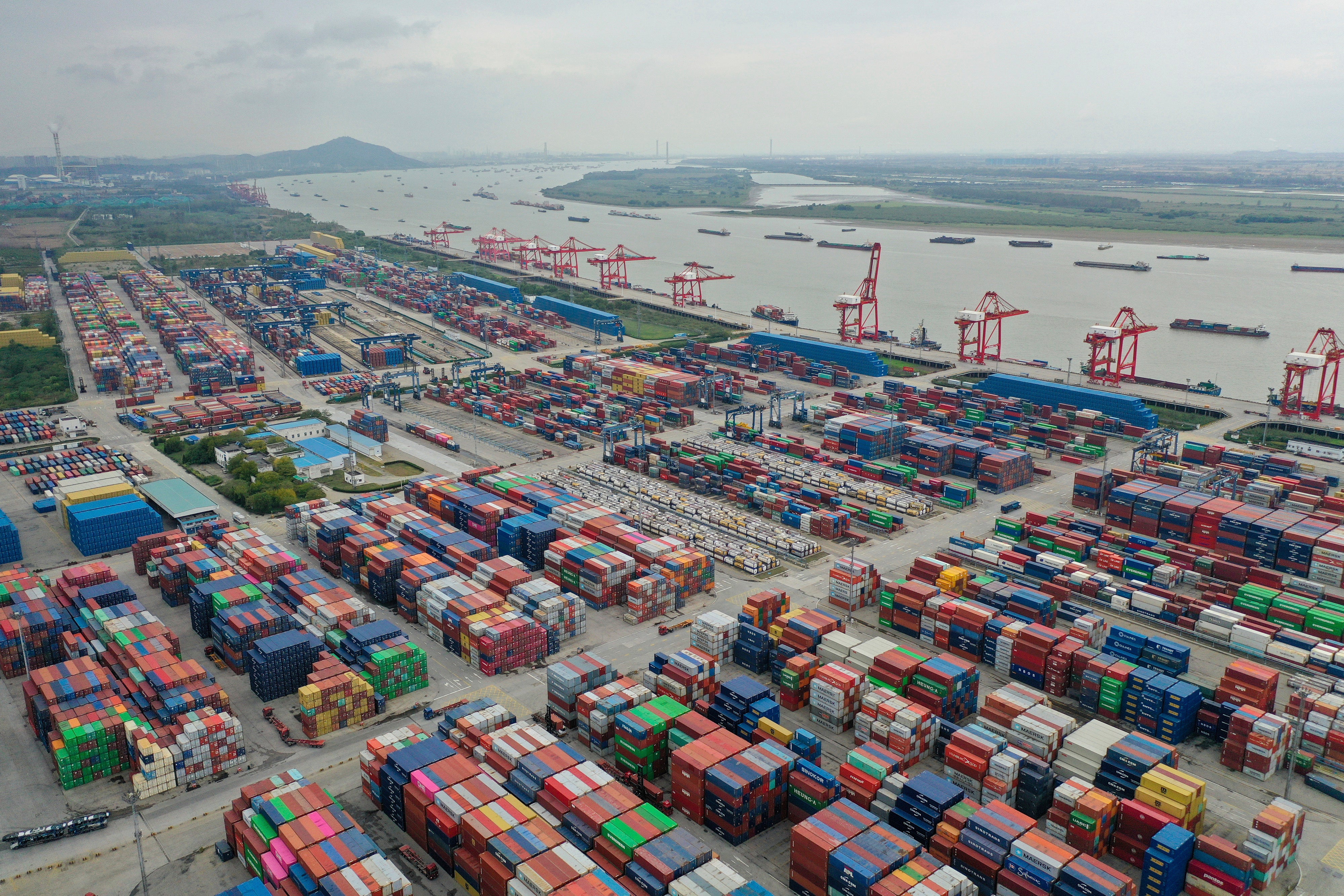China's trade contracts as Western demand weakens
China’s trade contracted again in January and February as U.S. and European demand weakened in the face of interest rate hikes, adding to pressure on official efforts to revive economic growth following the end of anti-virus controls

Your support helps us to tell the story
From reproductive rights to climate change to Big Tech, The Independent is on the ground when the story is developing. Whether it's investigating the financials of Elon Musk's pro-Trump PAC or producing our latest documentary, 'The A Word', which shines a light on the American women fighting for reproductive rights, we know how important it is to parse out the facts from the messaging.
At such a critical moment in US history, we need reporters on the ground. Your donation allows us to keep sending journalists to speak to both sides of the story.
The Independent is trusted by Americans across the entire political spectrum. And unlike many other quality news outlets, we choose not to lock Americans out of our reporting and analysis with paywalls. We believe quality journalism should be available to everyone, paid for by those who can afford it.
Your support makes all the difference.China’s trade contracted again in January and February as U.S. and European demand weakened in the face of interest rate hikes, adding to pressure on official efforts to revive economic growth following the end of anti-virus controls.
Exports sank 6.8% from a year earlier to $506.3 billion, an improvement over December’s 10.1% decline, customs data showed Tuesday. Imports fell 10.2% to $389.4 billion, deepening December’s 7.3% contraction.
China’s global trade surplus for the two months edged up 0.8% over a year earlier to $116.9 billion.
Forecasters expected trade to weaken as the likelihood of a recession in Western economies increased following rate hikes by the Federal Reserve and European Central Bank to cool economic activity and record-setting inflation.
“We don’t expect exports to rebound,” Iris Pang of ING said in a report.
That adds to complications for President Xi Jinping’s government, which is trying to revive economic growth that sank last year to 3%, the second-weakest rate since the 1970s. Beijing on Sunday set this year's growth target at “around 5%” while the ruling Communist Party tries to encourage consumer demand to reduce reliance on exports and investment.
A revival in Chinese demand would be a boost to global suppliers at a time when U.S., European and Japanese sales are weakening. China is the biggest export customer for its Asian neighbors and a key consumer market.
Retail sales and other activity have started to improve after anti-virus restrictions that kept millions of people at home and temporarily shut down Shanghai and other industrial centers were lifted in December.
The economy also is under pressure from tighter controls on debt, which triggered a slump in China's vast real estate industry and the economy in mid-2021.
The government has announced no plans to stimulate the economy with higher spending on building roads and other public works, which would boost demand for imported construction materials and equipment.
“Imports may take some time to recover,” Pang said.
China reports January and February trade data together to screen out the effect of the Lunar New Year holiday, which begins at different times each year during those two months. Factories shut down for up to two weeks.
Exports to the United States tumbled 21.8% from a year earlier to $71.6 billion following repeated rate hikes by the Federal Reserve to cool economic activity and surging inflation. Imports of American goods fell 5% to $30.3 billion.
The politically sensitive trade surplus with the United States narrowed by 30.9% to $41.3 billion.
Imports from Russia, mostly oil and gas, surged 31.3% over a year ago to $18.6 billion. Exports to Russia rose 19.8% to $15 billion.
China, the biggest global energy consumer, has stepped up purchases from Russia to take advantage of price discounts after Washington, Europe and Japan cut imports to punish President Vladimir Putin’s government for its attack on Ukraine.
China can buy Russian oil and gas without triggering Western sanctions, but Biden has warned Beijing against helping Moscow’s military. China bought about 20% of Russia’s crude exports in 2021 and increased that last year.
___
General Administration of Customs of China (in Chinese): www.customs.gov.cn
Subscribe to Independent Premium to bookmark this article
Want to bookmark your favourite articles and stories to read or reference later? Start your Independent Premium subscription today.